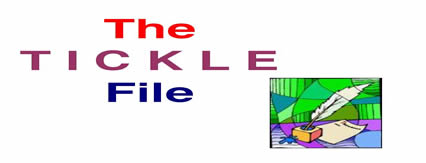
|
The Tickle File is ftm's daily column of media news, complimenting the feature articles on major media issues. Tickle File items point out media happenings, from the oh-so serious to the not-so serious, that should not escape notice...in a shorter, more informal format.
We are able to offer this new service thanks to the great response to our Media Sleuth project in which you, our readers, are contributing media information happening in your countries that have escaped the notice of the international media, or you are providing us information on covered events that others simply didn't know about. We invite more of you to become Media Sleuths. For more information click here. |
Hot topics click link for more
Fact-checking has been part of the journalistic landscape for decades, typically pre-publication verification. Independent, external fact-checking has risen significantly with the plethora of fake news and propaganda this century, particularly unfounded political claims and coronavirus disinformation. Journalism schools, publishers and digital technology providers have entered the field. Some, like AFP Fact Check, are available worldwide. Unsurprisingly, purveyors of fake news attempt to discredit reliable fact-checking researchers.
The United States Library of Congress (LOC) has added the archives of fact-checker StopFake to its collection, making the files available to researchers. The LOC cited StopFake as a “unique historical source that demonstrates in detail the evolution and threats of Russian propaganda and disinformation,” noted Ukrainian media news portal Detector Media (August 24). StopFake was formed in 2014 at Mohyla School of Journalism in Kyiv, Ukraine. Earlier the LOC added archives of Ukrainian book and literature review portal Chitomo to its collection. (See more about media in Ukraine here)
StopFake, for example, debunked Russian false claims about the Mariupol children’s hospital bombing and that millions of Ukrainians had asked for evacuation to Russia. “We have a big dataset of all those fakes we debunked,” said co-founder and chief editor Yevhen Fedchenko to Ukrainian public radio (July 28). “This is evidence of not just bad journalism or low quality journalism. This is evidence of a very well created system, which was created by the Russian government and is run top down, very well resourced, with money and people. Ukraine was just a testing laboratory for all these… tools used in many other countries including the United States.” (See more about fake news here)
StopFake regularly publishes online in Russian, English and several European languages. It produces a regular TV program about fake news on Ukrainian channels. It has about 20 full-time researchers.
|


